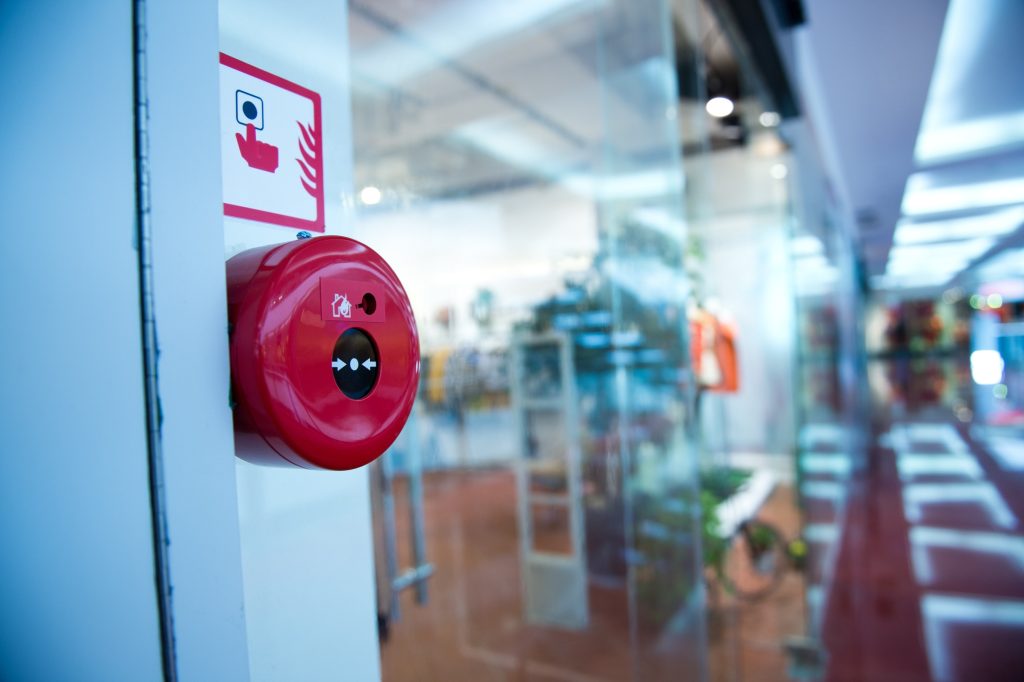
When it comes to keeping your business, employees, and assets safe, fire prevention is one of the top priorities.
Fire alarm systems play a critical role in providing early detection and warning, giving everyone the time they need to evacuate safely and minimizing property damage. But installing and maintaining fire alarm systems can feel overwhelming, given the complexity of choices and regulations involved.
This article will guide you through the essentials of fire alarm systems for businesses.
Why Fire Alarm Systems Are Essential for Your Business
Fire alarm systems are not merely optional safety measures—they are essential, often legally required components of business safety protocols. Here’s why every business should invest in one:
Protection of Life
Fire alarms provide early warning, which is crucial in saving lives during a fire. No one wants to imagine the worst-case scenario, but ensuring your employees and customers have clear warning in time to evacuate could prevent tragedy.
Property and Asset Preservation
By detecting fires early, modern fire alarm systems give first responders critical time to respond, which can reduce damage to your business premises and the assets inside.
Legal Compliance
Local fire codes and safety regulations often mandate the installation of fire alarm systems in commercial properties. Failing to comply could result in costly fines, lawsuits, or even business closures.
Insurance Requirements
Most business insurance policies require proof of an installed and fully operational fire alarm system. These systems play a role in both meeting this requirement and potentially lowering your premiums.
How Fire Alarm Systems Work
Before choosing the right commercial fire alarm system for your business, it is important to understand how these systems function. Fire alarm systems typically have four main components:
1. Detection Devices
These devices can sense the presence of smoke or heat. Types include:
- Smoke Detectors: Identify smoke particles in the air.
- Heat Detectors: Detect high temperatures or sudden rises in temperature.
- Multi-Sensor Detectors: Combine smoke and heat sensing for greater accuracy.
2. Control Panel
The “brain” of the system, the control panel receives signals from detection devices, determines the level of risk, and triggers alarms when necessary.
3. Alarm System
When fire is detected, the system sounds alarms, which may include:
- Audible Alarms (sirens or bells)
- Visual Alarms (flashing lights for individuals with hearing impairments)
4. Notification Systems
Modern alarm systems often include tools for alerting emergency services, directly notifying building inhabitants via text, or integrating with smart systems for enhanced monitoring.
Types of Fire Alarm Systems for Businesses
With multiple types of fire alarm systems available, it’s critical to select one that aligns with the size, complexity, and unique needs of your business:
1. Conventional Fire Alarm Systems
Suitable for small businesses, these systems divide the property into “zones.” If a fire is detected, the control panel identifies the zone where the alarm was triggered, simplifying response efforts.
2. Addressable Fire Alarm Systems
These systems, commonly used in larger businesses, assign a specific “address” to each device. This allows the system to pinpoint the exact location of a fire.
3. Wireless Fire Alarm Systems
Wireless systems minimize the need for extensive wiring, making them a good choice for adapting fire alarms to businesses in older properties.
4. Monitored Fire Alarm Systems
These systems notify emergency personnel automatically. They are ideal for businesses that remain unoccupied for long periods, such as warehouses.
Steps to Choosing the Right Fire Alarm System for Your Business
Step 1. Assess Your Business Needs
Evaluate the size and layout of your property. A large multi-level office building and a small retail shop require different fire alarm solutions.
Step 2. Understand Local Fire Code Requirements
Each region has specific regulations regarding fire alarm systems. Research requirements or consult with a local fire safety expert to ensure compliance.
Step 3. Consider Your Budget
While upfront costs are important, factor in long-term maintenance costs and potential savings from insurance discounts when setting your budget.
Step 4. Consult Fire Safety Professionals
Reach out to certified fire safety contractors or your local fire department for guidance on designing and installing your alarm system.
Step 5. Choose Advanced Features
Many businesses now opt for smart systems that integrate with apps for real-time updates and control, even when you’re offsite.
Step 6. Plan for Expansion
Choose a scalable system that can grow with your business. For instance, addressable systems are easily expanded when more space or devices are added.
Maintaining Your Fire Alarm System
Installing a fire alarm system is only half the battle. Regular maintenance ensures its reliability and compliance.
Conduct Monthly Tests
Most fire codes require a monthly inspection of alarm devices. Test alarms to ensure they are functioning properly.
Schedule Professional Inspections
Hire a certified professional to perform an in-depth inspection every 6 to 12 months. These checks will address battery replacements, wiring issues, or sensor wear and tear.
Update Your System
Technology evolves, and so do regulations. Ensure your fire alarm system stays up to date to meet the current safety standards.
Train Your Team
Ensure all employees understand the fire alarm system, including evacuation routes and how to respond during an emergency.
Fire Alarm Systems and Business Insurance
Many insurance companies offer discounts on policies for businesses equipped with fire alarm systems. However, ensure that your system meets the insurer’s requirements, such as continuous monitoring or integration with professional fire services. Installing and maintaining a certified fire alarm system gives you leverage during policy negotiations and peace of mind in case of fire-related incidents.
Fire Alarms as Part of a Bigger Safety Plan
Fire alarm systems are the foundation of a comprehensive fire safety strategy. Complement them by:
- Installing fire extinguishers and training employees to use them.
- Creating and practicing an evacuation plan.
- Conducting regular fire drills.
- Installing sprinklers and smoke-containment systems where possible.
Build a Safer Future for Your Business
Investing in a fire alarm system means investing in the safety and longevity of your business. From protecting the lives of your employees to securing your financial future against the unexpected, the importance of these systems cannot be overstated.
If you’re preparing to install or upgrade your fire alarm system, take the time to assess your specific business needs and consult with fire safety experts.
When paired with regular maintenance and a robust emergency plan, a reliable fire alarm system can provide unmatched peace of mind.
Ready to elevate your business’s fire safety measures to the next level?
Connect with Advanced Alarm Systems to explore cutting-edge solutions tailored to your unique requirements.
We have been serving our customers since 1986 and we provide security and life safety solutions throughout Massachusetts and New England.
Contact us today to learn more about how our advanced alarm systems can create a comprehensive security solution tailored to your unique business needs.
